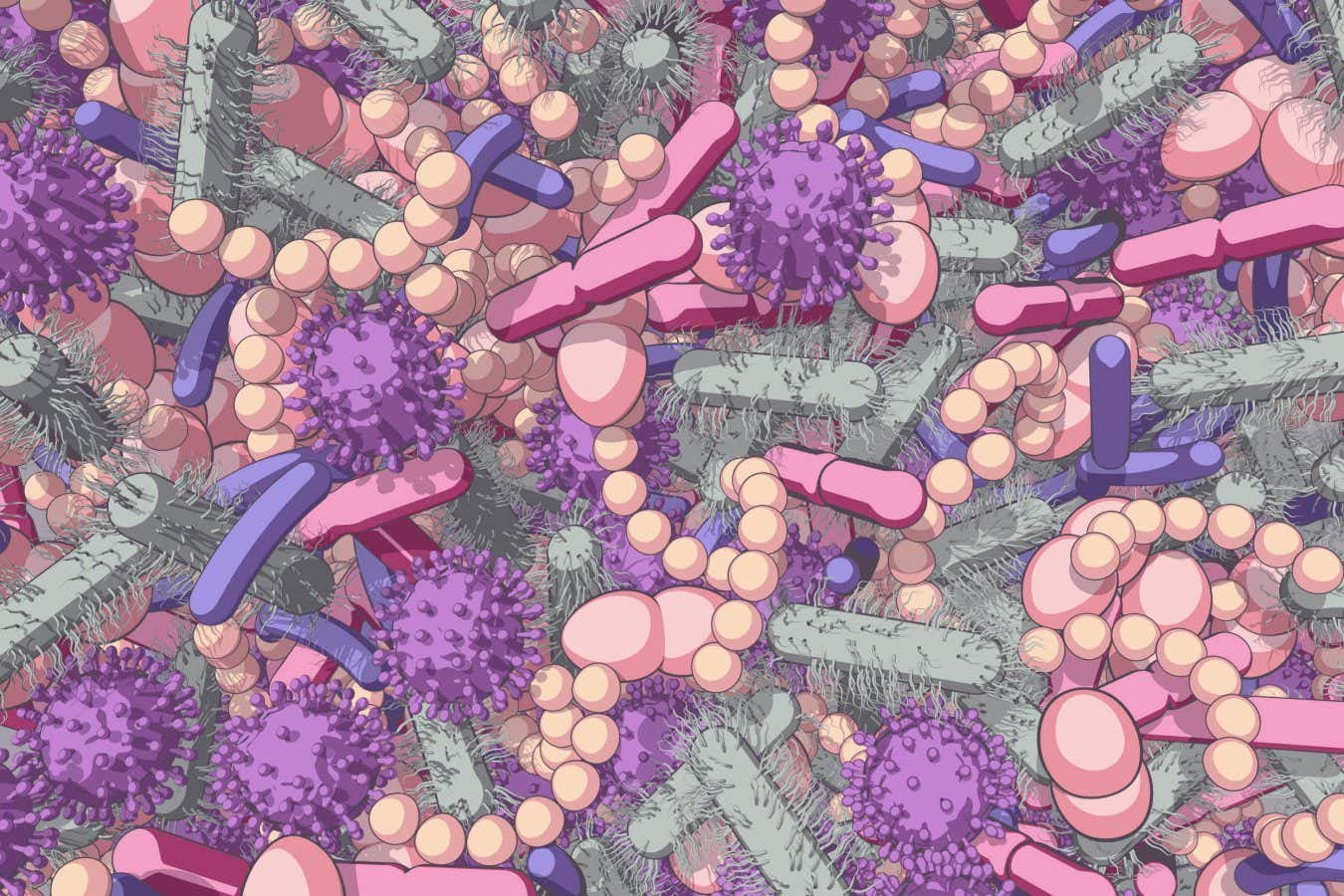Recovering levels of specific intestinal microbes can help treat fertility from people with PCOS
Science Photo Library / Alamy Stock Photo
Women with polycystic ovarian syndrome (PCOS) have low levels of a gut microbe that appears to increase the risk of pregnancy complications.
PCOS is the most common hormonal state of women of reproductive age and is a leading cause of infertility. Still, it is understood relatively little about what causes it or how to best. For example, it is not clear why those with PCOS who are capable of becoming pregnant have a higher risk of complications such as spontaneous aborte, premature birth and gestational diabetes.
Aixia Liu at Zhejiang University in China and her colleagues monitored pregnancy results in 220 women in 44 cities in China, half of whom had PCOS. All of them were under 35 years old and delivered blood, stool and tissue samples of their endometrium or the inner lining of the uterus.
Despite similar pregnancy rats, with PCOS, they were almost twice as likely to experience a pregnancy complication, such as metcarriage, premature birth, gestational diabetes or a child with low birth weight. The researchers also found that with PCOS they had about half of the ament of a gut bacterium called Merdae Parabacteroides Than those without the condition and that this was associated with pregnancy results.
P. Merdae Helps to convert certain nutrients, such as amino acid-isolucine, to beneficial compounds called short-chain fatty acids that play an important role in reproductive health. This probably explains why participants with PCOS on a ring had approx. 39 per A hundred more isoleucine and 10 per A hundred lower levels of short -chain fatty acids in blood tests than those without it. They also had high levels of isoleucine in endometrial tissue.
When the researchers cultures the endometrial cells of cultures and exposed them to isoleucine in a bowl, they saw an increase in markers of cellular senescence where cells become so worn or damaged that they need fun. Isoleucin also hindered the process that endometrial cells undergo during preparation for and during pregnancy.
“These findings show age -like changes in the uterus,” Liu said in a press release from an annual meeting of the European Society of Human Réploduction and Embryology, where she presented these findings. “Our data suggests that high isoleucin levels and the loss of P. Merdae May impair endometrial health, even in women under 35. “
Although this suggests that changes in the intestinal microbioma can contribute to fertility from in PCOS, Andrea Dunaif is at Icahn School of Medicine at Mount Sinai in New York skeptical. Her own research suggests that reproductive aging in PCOS is delayed rather than aceraled. “Abnomalitated reproductive theirs tend to improve in the 30s,” says Dunaif. “It makes me skeptical that the endometrial findings are and if they really are what is responsible for these changes and pregnancy results.
These findings can still lead to improved fertility treatment for PCOS. “The microbioma is something [where] You can intervene with different probiotics to change [bacteria]”Says Dunaif.” So it’s nice to have a potential goal to treat because we don really have any details for PCOS. “
Topics:
